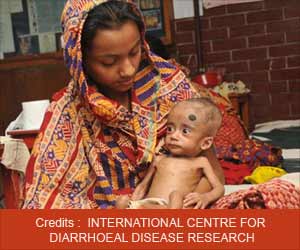COVID-19 infection reduces the diversity of bacterial species in the gut. This can further endanger the patient's health.
- An unhealthy gut increases an individual’s susceptibility to various diseases
- The gut microbiome diversity is disrupted by the COVID-19 virus, increasing the risk of other infections
A person who has an unhealthy gut is more susceptible to C. difficile, a dangerous bacterium that can cause life-threatening diarrhea. Additionally, it may result in other health issues like bloating and acid reflux.
According to experts, the study is the first to demonstrate that COVID-19 alone harms the gut flora. Doctors had previously suspected that the gut bacteria had been harmed by the use of antibiotics to treat COVID-19.
The majority of COVID-19 patients showed poor gut microbiome diversity, according to an analysis of over 100 men and women hospitalized with the disease in 2020. The researchers discovered that a single strain of bacteria dominated the guts of a full quarter of the animals.
Populations of several potentially dangerous bacteria grew concurrently. 20% of patients had some antibiotic-resistant germs that had entered their circulation.
Source-Medindia
















